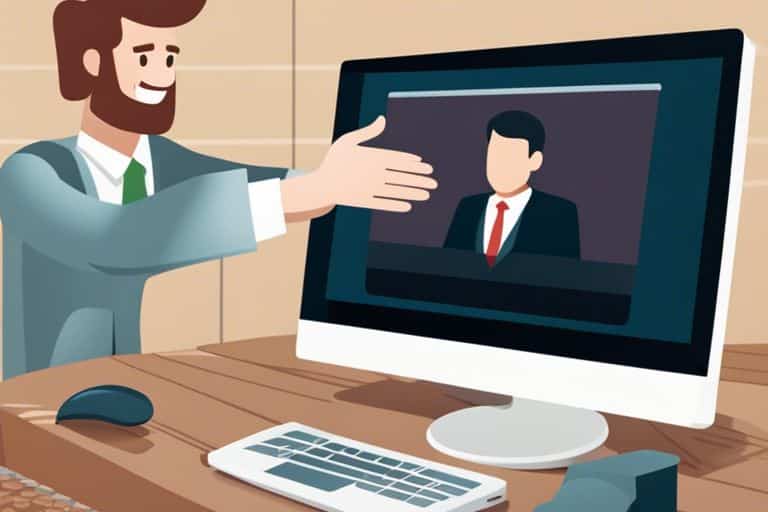Table of Contents
ToggleReject A Job Interview There’s a crucial art to mastering the art of rejecting a job interview gracefully. Whether it’s due to a sudden change of heart or landing your dream job elsewhere, knowing how to politely decline a job interview can save you and the hiring manager time and effort. In this guide, we’ll walk you through the dos and don’ts of turning down an interview, with tips and templates from How to Decline a Job Interview (With Tips and Templates). Be mindful of, handling this situation with tact and professionalism can leave a lasting positive impression in the professional world.
Key Takeaways:
- Be respectful: When rejecting a job interview, always remember to be respectful and appreciative of the opportunity offered.
- Communicate promptly: It is important to communicate your decision to reject the interview as soon as possible, so the employer can make alternate arrangements.
- Provide a valid reason: While you don’t have to go into great detail, offering a brief and honest reason for declining the interview can help maintain a positive relationship with the employer.

Pre-Rejection Considerations
Even before you officially turn down a job interview offer, there are a few key considerations to keep in mind. It’s crucial to approach this decision thoughtfully and professionally. Taking the time to evaluate your reasons for rejecting the opportunity and timing your response appropriately can make a significant difference in how the decision is perceived by the hiring company.
Evaluating Your Reasons
Your reasons for rejecting a job interview offer should be well-considered and aligned with your long-term career goals. Ensure that you are declining the opportunity for valid reasons that align with your values and aspirations. It’s important to be honest with yourself about why the role or company isn’t the right fit for you.
Reflect on the aspects of the job, company culture, growth opportunities, and overall alignment with your career trajectory. By understanding your motivations for turning down the interview, you can communicate your decision more effectively and with confidence.
Also Read : How To Get A Job
Timing Your Response
In the context of rejecting a job interview, timing is key. Consider the hiring company’s perspective and aim to respond promptly to show respect for their time and to allow them to continue their search promptly. Delaying your response unnecessarily can inconvenience the hiring team and potentially harm your professional reputation.
For instance, if you know early on that you are not interested in pursuing the opportunity, it’s best to inform the company as soon as possible to allow them to focus on other candidates. Timely communication demonstrates professionalism and respect for the hiring process.
Also Read : How To Decline A Job Offer
How to Craft Your Rejection
The Art of Being Clear Yet Gracious
Now, when it comes to rejecting a job interview, one of the most crucial things to remember is the art of being clear yet gracious. You want to be honest and direct with your rejection while also showing appreciation for the opportunity. Start by thanking the interviewer for considering you for the position and express your gratitude for the time and effort they have put into the process.
Make sure to politely but firmly decline the offer and provide a brief explanation for your decision. Whether it’s due to accepting another job offer, personal circumstances, or simply not being the right fit, it’s important to be transparent. Note, being respectful and professional in your response will leave a lasting positive impression, no matter the outcome.
Choosing the Right Communication Channel
There’s a difference between sending a rejection email and making a phone call. Each communication channel has its own nuances and can impact how your message is received. Consider the company culture and the relationship you’ve built with the interviewer when deciding on the most appropriate way to deliver your rejection.
Craft your rejection in a way that reflects your professionalism and shows that you value the time of the hiring manager. Choosing the right communication channel can help you convey your message effectively and maintain a positive impression, even if you’re declining the job offer.
Also Read : How To Make Money Without A Job
Post-Rejection Etiquette
All rejected offers should be handled with professionalism and respect. It is important to maintain a positive relationship with the company, as you never know when paths may cross in the future. You can refer to How to Reject an Interview Offer [With Email Sample] for guidance on rejecting an interview offer politely.
Dealing With Follow-Up Queries
Queries from the company following your rejection of their offer can be common. It’s important to respond promptly and courteously. Be honest in your communication, expressing your gratitude for the opportunity while reiterating your decision to decline. Note, transparency and professionalism are key in handling follow-up queries after rejecting a job offer.
Keeping Doors Open for Future Opportunities
Post-rejection, it’s crucial to keep the doors open for potential future opportunities with the company. Networking is vital in the professional world, and maintaining a positive relationship even after rejection can lead to unforeseen doors opening later on. For instance, you could connect with the hiring manager on LinkedIn or express your interest in staying in touch for future roles.
Also Read : How To Find A Job

Also Read : How To Respectfully Decline A Job Offer
To wrap up
So there you have it, rejecting a job interview can be tough, but if you approach it with honesty and gratitude, you can maintain a positive relationship with the company. Remember to be respectful of their time and provide a clear explanation for why you decided to decline the opportunity. Stay true to yourself and your career goals, and keep hustling towards the opportunities that align with your path to success. Rejecting a job interview is just another stepping stone on your journey to reaching your full potential. Keep grinding, keep growing, and keep moving forward. Go get ’em, champ!
Also Read : Find Top Oracle Jobs In Your Area | Apply Now
FAQs
Q: Why should I reject a job interview?
A: It’s important to reject a job interview if it doesn’t align with your career goals or values. Your time is valuable, so don’t waste it on opportunities that won’t benefit you.
Q: How do I politely decline a job interview?
A: Be honest and respectful in your communication. Thank the interviewer for the opportunity and explain your reasons for declining. Be mindful of, professionalism is key.
Q: What should I do if I’ve already accepted the interview but want to back out?
A: It’s best to notify the employer as soon as possible. Apologize for any inconvenience and explain your decision in a polite and concise manner. Honesty is always the best policy.
Q: Can rejecting a job interview harm my future chances with the company?
A: While it’s possible that rejecting a job interview could impact your future chances with the company, it’s important to prioritize your own needs and goals. If you handle the situation professionally, it shouldn’t have a lasting negative effect.
Q: Should I provide a reason for declining a job interview?
A: It’s up to you whether you want to provide a reason for declining. If you feel comfortable, offering a brief explanation can help the employer understand your decision. However, you’re not obligated to disclose personal details if you don’t want to.
Q: How can I decline a job interview without burning bridges?
A: Approach the situation with respect and gratitude. Express your appreciation for the opportunity and explain your decision in a positive light. Keeping the lines of communication open and maintaining a professional attitude can help prevent burning bridges.
Q: Is it okay to reject a job interview if I’ve already scheduled it?
A: Yes, it’s okay to reject a job interview even if you’ve already scheduled it. It’s better to be honest and decline the opportunity than to waste your time and the interviewer’s time. Just be sure to handle the situation with professionalism and courtesy.





